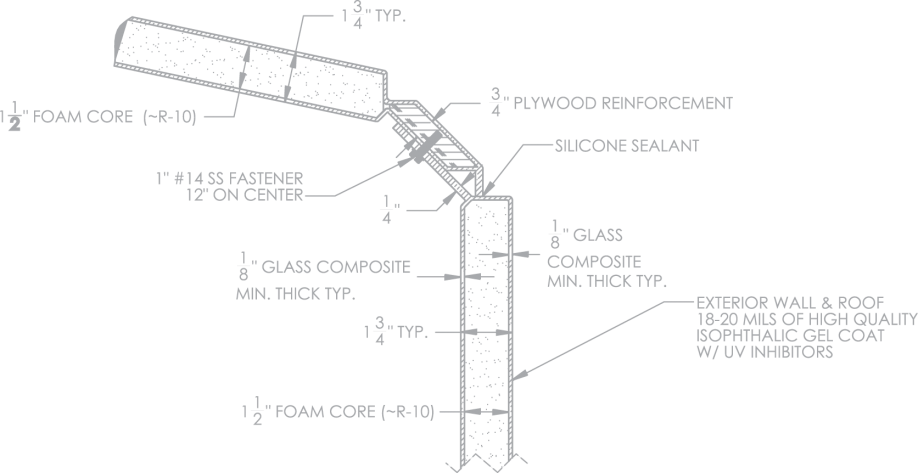Just How Composites are Transforming the Landscape of Building And Construction Products
Just How Composites are Transforming the Landscape of Building And Construction Products
Blog Article
Discovering the Uses and Advantages of Recycled Composites in Modern Industries
The combinations of recycled materials with advanced composite technologies offers an appealing method for boosting sustainability, strength, and cost-efficiency throughout different industries. As markets look for ingenious solutions to resolve ecological issues and enhance functional performances, the unification of recycled compounds arises as a compelling alternative.
Environmental Benefits of Recycled Composites
The application of recycled compounds in contemporary sectors supplies considerable ecological benefits, adding to the reduction of waste and the conservation of natural deposits. By integrating recycled composites into making processes, industries can decrease their reliance on virgin materials, thereby decreasing the amount of waste generated and the power needed for extraction and production. This shift towards utilizing recycled compounds assists in diverting products from landfills, alleviating the problem on waste monitoring systems, and lowering greenhouse gas emissions linked with conventional manufacturing methods.
In addition, the usage of recycled composites advertises the conservation of natural sources such as lumber, minerals, and water, which are commonly depleted through the removal and processing of raw materials (composites). By expanding the life expectancy of products via recycling, markets can help maintain ecological communities and biodiversity by reducing the need for new resources. On the whole, the adoption of recycled compounds in modern-day sectors plays an essential function in promoting sustainability and reducing the ecological effect of production procedures
Enhanced Durability in Item Production
With an emphasis on longevity and robustness, including recycled composites right into product manufacturing procedures enhances longevity and sustainability. By using recycled compounds, makers can produce products that are not just solid yet likewise resistant to tear and wear, making them excellent for long-lasting usage in numerous sectors. The combination of various products in recycled composites can usually cause improved toughness and sturdiness contrasted to traditional materials, offering an economical solution for producing resilient items.
Among the vital advantages of utilizing recycled compounds in item manufacturing is the capability to customize the product residential or commercial properties to fulfill particular durability demands. By readjusting the composition and manufacturing strategies, producers can customize the recycled composites to stand up to severe environmental conditions, heavy loads, or constant use without compromising on performance. This flexibility in design and manufacturing permits for the development of extremely resilient items that preserve their stability gradually, minimizing the requirement for frequent replacements and ultimately adding to a more lasting production process.
Cost-Effectiveness and Economic Benefits
Integrating recycled compounds into item manufacturing not only improves resilience and sustainability however also uses significant cost-effectiveness and economic advantages. Using recycled compounds can lead to minimized product costs as recycled materials are usually less costly than virgin products. In addition, reusing composite materials can lower waste disposal costs and decrease the need for landfill area, adding to total price savings for markets.

Development and Style Flexibility With Recycled Compounds
Utilizing recycled compounds in contemporary industries uses unmatched chances for development and design adaptability. By integrating recycled products right into composite manufacturing procedures, companies can press the boundaries of conventional layout restraints and discover new possibilities. The adaptability read more of recycled composites permits for the production of complex forms and structures that could not be achievable with traditional materials.
One of the key advantages of recycled composites is their ability to be formed into numerous forms, offering designers the flexibility to try out distinct sizes and shapes. composites. This adaptability opens up a world of imaginative chances, enabling the advancement of light-weight yet resilient items that meet the certain requirements of various industries
Additionally, using recycled compounds advertises sustainable methods and sustains the circular economy by reducing waste and decreasing the ecological impact of manufacturing processes. This concentrate on eco-friendly design remedies aligns with the growing trend in the direction of sustainability in modern-day sectors, making recycled composites an important resource for forward-thinking and cutting-edge firms.
Applications Throughout Numerous Industries
Recycled composites find impactful and diverse applications across a large range of markets because of their special buildings and sustainability benefits. In go right here the automotive sector, these materials are increasingly used for manufacturing lightweight and resilient components, enhancing fuel performance and reducing carbon exhausts. The aerospace sector take advantage of recycled composites in the manufacturing of aircraft parts, where the materials' strength-to-weight proportion is essential for guaranteeing security and performance. In building, these composites are utilized for developing solid yet eco-friendly building materials, contributing view publisher site to sustainable facilities development. The renewable resource market utilizes recycled composites in wind generator blades and solar panels, using their toughness and resistance to harsh environmental conditions. Furthermore, the marine industry uses these materials for making boat hulls and components, providing enhanced resilience and rust resistance. The convenience and sustainability of recycled compounds make them beneficial across various markets, driving innovation and ecological stewardship. composites.
Verdict
Finally, the usage of recycled compounds in contemporary industries supplies significant ecological benefits, boosted resilience in item production, cost-effectiveness, and economic advantages. In addition, the use of recycled compounds enables technology and design flexibility across numerous sectors. On the whole, the fostering of recycled compounds offers a sustainable and sensible solution for satisfying the demands of the industry while likewise lowering environmental effect.

One of the crucial benefits of using recycled composites in item production is the capability to customize the product residential or commercial properties to fulfill details longevity demands. Making use of recycled composites can lead to decreased product expenses as recycled products are frequently much less expensive than virgin products. The aerospace sector benefits from recycled compounds in the production of airplane parts, where the materials' strength-to-weight ratio is crucial for making sure safety and security and efficiency.
Report this page